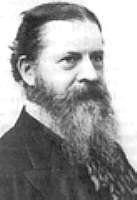I believe I was born to be a teacher. I mean, I've been teaching my friends and people around me stuff I knew for as long as I can remember. Anything I knew, I wanted to teach. Then I was transplanted on account of my husband's job to Atlanta, Georgia.
The loss of identity for me was complete - and I was back from teacher to student again, trying to adapt to these new, strange cultures. I lost everybody and everything I was familiar with.
With a dependent's visa, I was in a helpless limbo of professional inactivity, and it took me five years to gather myself and look for alternatives. My Kindermusik odyssey began when I set out to find a one-stop-shop means of helping my three-year-old son to blossom and evolve.
Music has always been a passion for me, so when a friend suggested 'Kindermusik' - a music and movement class for toddlers and pre-school children, I jumped right in. I had no way of knowing then that I was embarking on a developmental journey that would vastly broaden my horizons as a parent and educator.
The Kindermusik Way
This was no class. Kindermusik was an experience. Each age-appropriate program acts as a stepping stone to the next - each stage adds new concepts and challenges along a journey that can last seven magnificent, musical years...
Once a week, my son and I opened our hearts and minds to the Kindermusik way. The repertoire was incredible - songs, stories, finger and toe plays, 'bouncy' songs, small and large motor movement selections, clean up songs... in short, a 'whole body trip'!
Along the way, the instructors added dancing and rhythm instruments such as drums, shakers, sticks and bells especially adapted for little hands, moving with scarves, hoops, puppets and other props. Each session ends with a calming lullaby and entertaining friendship songs.
It was a mind-expanding community experience - even the family weddings and celebrations of my childhood could not match it. Kindermusik, I discovered, provides the ultimate learning atmosphere - fun and instruction perfectly matched for both parent and child!
Each class provided take-home materials like high-quality themed music CDs, creative activities, beautifully illustrated children's books and instruments created to complement the music - and the Kindermusik experience.
Tracing The Roots
The teacher in me prompted me to research Kindermusik's origins and premise. I discovered that this groundbreaking musical movement came into being in 1968, when the West German Government commissioned several doctoral candidates to develop a music and movement curriculum for Kindergarten-aged children.
Over half a million children took part in the program. Today, Kindermusik International - with its headquarters at Greensboro, North Carolina - has over 5000 educators in 35 countries teaching over one million families.
My research also revealed a highly eclectic mix of influences. Kindermusik, I discovered, is founded on some the leading approaches and philosophies in music and movement education that add a whole new dimension to early childhood.
Kindermusik - A 'Sound' Premise
Zoltan Kodaly (Hungary) - Kodaly believed that a child's voice is his/her most precious instrument. He felt it was vital that a child sing often, joyfully, and unaccompanied to develop a tuneful voice.
Carl Orff (Germany) - Orff emphasised the inclusion of singing, movement, instrument playing and improvisation.
Emile Jacques Dalcroze (Switzerland) - Dalcroze advocated the use of movement and building musicianship through hearing, thinking, reading and feeling music emotionally, which in turn enables children to approach their instruments with new understanding and skill.
Shinichi Suzuki (Japan) - Suzuki felt music is learned primarily by listening, in the same manner that we learn our native languages. Developing a musical ear is paramount to all musical development.
Maria Montessori (Italy) - Montessori believed that a child learns best through multi-sensory experiences. If a child can participate in a concept through touch, smell, hearing and sight, the concept will have a much higher impact and recall.
The Kindermusik curriculum is also developed based on more recent research on brain development in the crucial early years. Convinced and mesmerized by what this revolutionary concept is and stands for, I trained to be a Kindermusik educator.
Ever since, the testimonies from my Kindermusik parents have kept me going - without exception, they said they had witnessed amazing forward leaps in their child's developmental evolution.
Many of them reported better relationships with their children, too. I cannot aptly express how it feels to be making such a contribution. It is everything that a teacher could ever ask for, and more...
Research proves that early integration of music into children's daily routine improves their ability to think, reason, create, and express. It touches all domains of learning - cognitive, emotional, social, linguistic ability and physical expressiveness.
More specifically, it promotes language skills, literacy, listening, problem solving, social skills, self-esteem, and musicality. A typical Kindermusik class incorporates all these factors.
The parent in me also had reason to rejoice. My own son, now six years old, has developed an astounding sense of rhythm - and a heart-felt love for singing. He's learning to play the piano and loves to practice. Moreover, he has been part of nurturing environment full of energy, imagination, music, dancing, and playful delight.
At the annual convention in Chicago last October, I learned with joy that Kindermusik is finally coming home to India, thanks to a tie -up with Eurokids International. It makes perfect sense to me - we Indians have an innate ability to absorb the best from all over, and I know for a fact that this program will transform the lives of many Indian children and parents the way it transformed mine and my son's.


 12:34 AM
12:34 AM
 OGB community
OGB community












